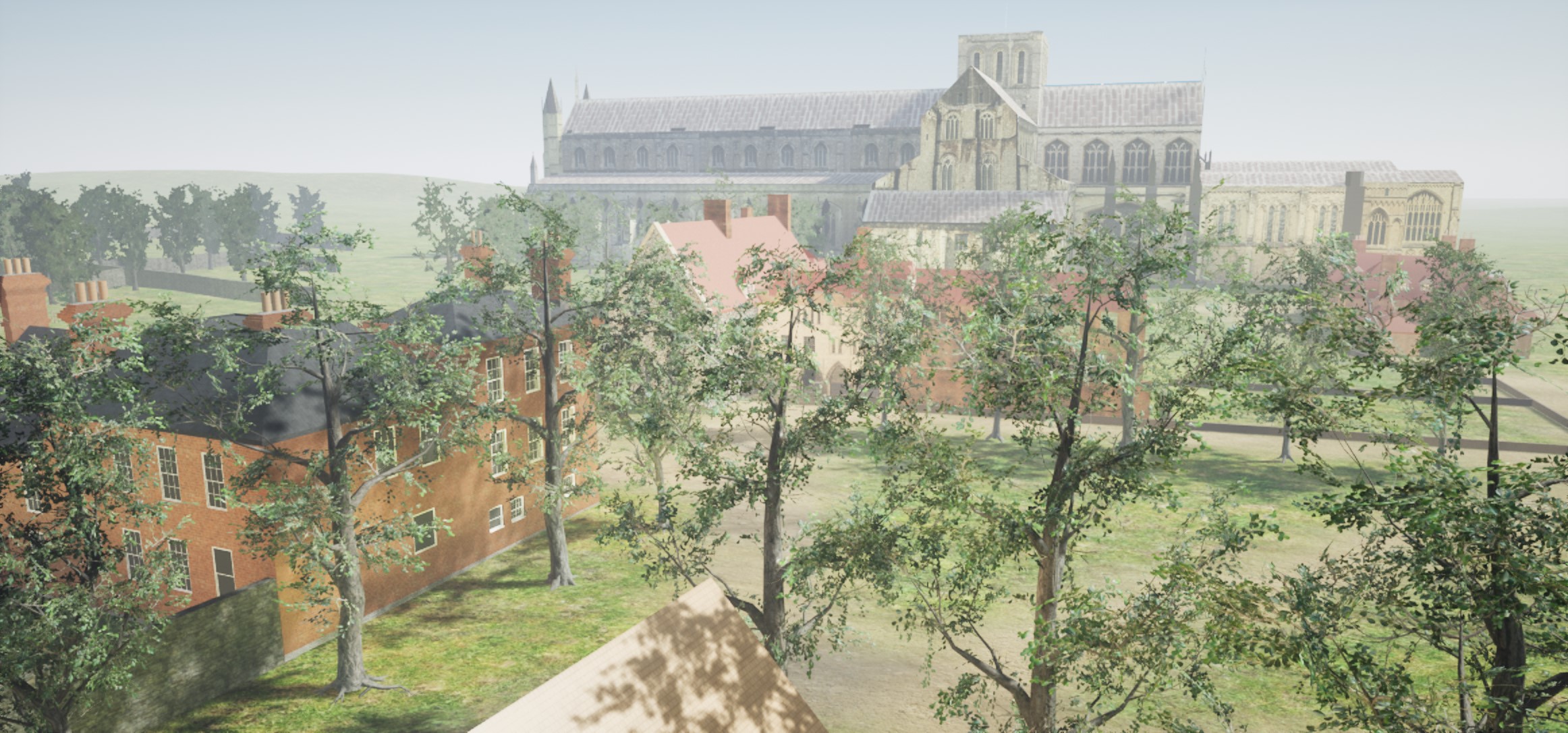
Ancient history and modern technology came together at a conference held at the University of Winchester.
The Community of Enterprise, Design & Innovation (CEDI) held its first Digital Cultural Heritage Interpretation conference at the University’s West Downs Campus last Thursday.
The event brought together researchers, practitioners, and educators to present, discuss and share ideas about their projects and the latest developments in this field.
The event was organised by Dr Debs Wilson, founder of CEDI, who is a Senior Lecturer and Programme Leader in Digital Media Design at the University.
At the conference Dr Wilson spoke of her Virtual Cities project which combines 3D modelling technology with historical research, architectural modelling, and interactive storytelling to recreate Winchester in the 1400s and 1800s.
Dr Wilson said: “By constructing these buildings which no longer exist people today can walk about them and see how people lived in the past and learn from them.”
The technology can also recreate earlier versions of existing buildings which have undergone great changes.
Dr Wilson cited the house in which Jane Austen lived in College Street which is a great tourist attraction but not actually open to the public as it’s a private home.
“We can create a faithful model which shows how Jane would have lived and that would attract a great deal of attention from the various jane Austen Societies around the world,” said Dr Wilson.
She has high hopes for Virtual Cities, which she believes can be used widely in education and tourism and has recently turned it into a spin-off limited company.
Also speaking at the event was University of Winchester history professor Ryan Lavelle who gave a joint presentation about the development of the city’s newest visitor attraction, 878AD, with Amy-Jane Humphreys from the Hampshire Cultural Trust.
878AD, in the city’s Brooks Centre, recreates a key moment in Winchester’s history when the Viking invaders are advancing on the city and the Anglo-Saxon way of life is under threat.
Visitors are taken back to the ninth century through the world of the video game franchise Assassin’s Creed Valhalla, cinematic audio-visual projections and live performances by actors.
Professor Lavelle, who worked as an historical consultant on the hit Saxons v Vikings TV drama The Last Kingdom, explained how ‘synchronicity’ had played a huge part in the birth of 878AD.
He said he had been recruited as an historical advisor by Ubisoft, makers of Assassin’s Creed, at the same time as the Cultural Trust came to him for help with their plans to make more of Winchester’s Anglo-Saxon heritage.
Professor Lavelle brought the two parties together and the result is a visitor attraction offer which combines education with the excitement of video games.
Amy-Jane, who is graduate of the University of Winchester, said 878Ad was helping to “fill a gap in Winchester’s heritage landscape”.
“We have many Georgian and Victorian buildings but our Anglo-Saxon past is hard to see. This has helped us re-insert King Alfred into the city,” she told the conference.
.jpg)
Other speakers at the event included Ala’a Al Badarin from Glasgow School of Art who described how heritage objects can be better represented online; Campbell Ritchie who discussed the multi-media app Explore Malmesbury; Grant Cox from ArtasMedia and Maria Garcia-Abadillo, head of digital at cultural consultancy Barker Langham who gave a presentation entitled “Qatar’s Past Re-imagined”; Neil Jakeman of Kings College’s Digital Lab who described how digital tools had been employed to reinterpret a work by Titian; and Geoff Browell, head of Archives at King’s College, and Tam McDonald, founder of Cradle of English, who spoke about improving sustainability in digital cultural heritage interpretation.
Dr Wilson said: “I am pleased that the first conference went well especially regarding the range of talks and the connections made. I hope for this to become an annual event and attract more attention, becoming bigger and better in the future.
“Historical digital interpretation is a growing area in all areas of cultural heritage, with our students realising building historical ‘worlds’ and artefacts can be as engrossing and engaging as playing games such as Assassins Creed, and provide employability in a growing area.”
Pictured top: the area around Winchester Cathedral in the 1700s created by Virtual Cities.
Pictured above: conference speakers (from left) Grant Cox, Tam McDonald, Prof Ryan Lavelle, Dr Debs Wilson, Neil Jakeman, Amy Jane Humphries, Campbell Ritchie and Geoff Browell.
Back to media centre